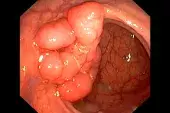Defensive beliefs are likely to affect colorectal cancer screening update
By Michael Doris MB BS
Defensive attitudes and behaviour are key barriers to colorectal cancer (CRC) screening uptake, according to the findings of a recent Irish study published in Cancer.
Globally, CRC screening rates with the faecal immunochemical test (FIT) are low despite multiple healthcare initiatives, such as postage-distributed home testing. Recognising this, researchers sought to examine the association between defensive behaviours and attitudes and uptake of FIT-based CRC screening in a cross-sectional survey of 7476 Dublin citizens.
The researchers sent a questionnaire to individuals who had been invited to participate in a FIT-screening program but declined (FIT-nonusers) and to an equal number of individuals who had participated (users). The questionnaire included the McQueen defensive information processing (DIP) measure comprising seven subscales in the following four domains:
- opting out (reducing risk awareness by avoidance)
- blunting (active mental disengagement through avoidance and accepted denial)
- suppression (acknowledging others’ risk but avoiding personal inferences through self-exemption beliefs)
- counterarguing (arguing against the evidence).
Responses to the questionnaire were received from 53% of users (n=1988) and 8% of nonusers (n=311).
The suppression domain was the most significant for nonparticipation: a one-unit increase in self-exemption (‘I don’t need to be tested because…’) resulted in a 20% lower odds of participation, and a one-unit increase in denying immediacy (‘I will wait to get tested for colon cancer until…’) resulted in a 47% lower odds of participation.
‘Suppressors who deny the immediacy to be screened may be amenable to behavioural interventions that nudge them to be screened,’ the researchers wrote. ‘Suppressors who self-exempt themselves may require stronger educational and defensiveness-reducing interventions to encourage future screening participation.’
Professor Graeme Young, Matthew Flinders Distinguished Emeritus Professor and Professor of Global Gastrointestinal Health, Flinders University, Adelaide, told Medicine Today this was a potentially important study.
‘While CRC screening is now established practice in over 50 countries, participation rates with FIT-screening are generally suboptimal,’ he said, noting that the participation rate in the Australian National Bowel Cancer Screening Program was about 40%.
‘The association of DIP with nonparticipation gives us some clues as to how we might improve participation in Australia,’ Professor Young said. ‘This is very important at this time, after three years of battling COVID and having to deal with increasing procrastination and delayed diagnosis of CRC as a consequence.’
Professor Young said that by being alert to an age-eligible individual’s screening status, GPs would have the opportunity to address a person’s reasons for nonparticipation.
‘Asking "Are you up to date with screening?" would be a simple strategy,’ he said.


